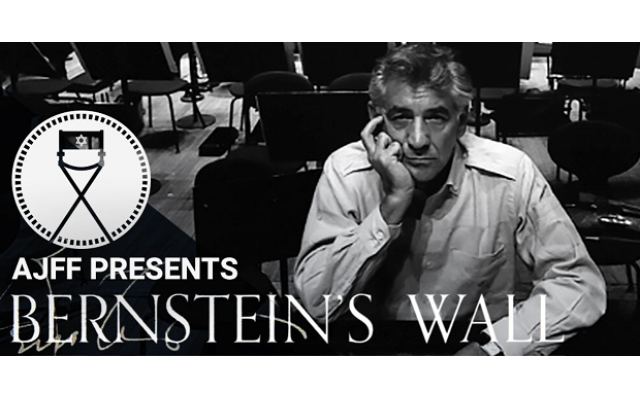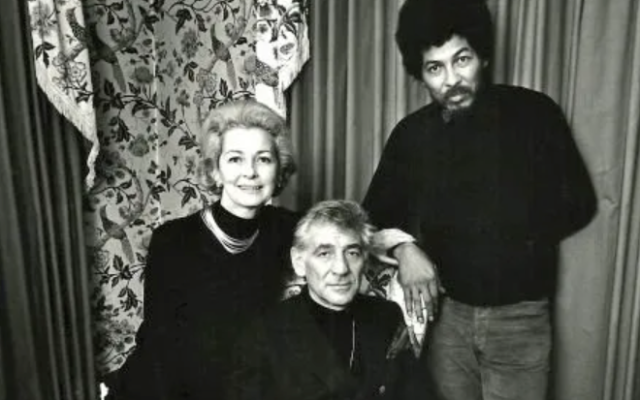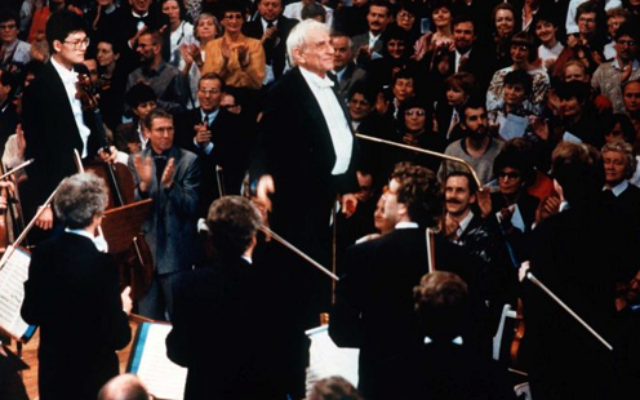AJFF Relaunches Screenings with ‘Bernstein’s Wall’
The Atlanta Jewish Film Festival will return to its recent home, the Byers Theater of the Sandy Springs Performing Arts Center, on Sept. 21.
The Atlanta Jewish Film Festival, which, because of the pandemic, has been forced into a largely virtual format over the last two-and-a-half years, is coming back to the big screen. On Wednesday, Sept. 21, close to the start of the Jewish High Holy Days, the festival will return to its recent home, the Byers Theater of the Sandy Springs Performing Arts Center.
The centerpiece for the evening is “Bernstein’s Wall,” a fascinating biographical documentary about renowned conductor and composer Leonard Bernstein. Also on the program is a personal appearance by the director of the film and music by student musicians from the Atlanta Symphony Orchestra’s Talent Development Program.
In some respects, the evening is aimed at bringing back some of the movie-going excitement that has been largely missing from an event strongly impacted by the COVID-19 virus. Kenny Blank, the executive director of the festival, readily acknowledged the need to reconstitute its audience.
“We really had to give people a compelling reason, again, to get off the couch and get out of the house, to be out in the community doing something together in person,” Blank told the AJT. “So I think this is true for any film festival. It’s not just enough anymore to simply project a film up on a screen.”
In February of this year, the festival was forced to tear up its plans for an event that relied heavily on theatrical showings, when its medical advisory committee suggested that it was too risky. In less than two weeks, with program books already in the mail, the AJFF went virtual. According to Blank, the program on Sept. 21 is a way of conveying to its audience that the festival — one of the city’s most important cultural institutions — is back.

“We’ve missed connecting with each other, with the community and with our audience,” Blank said. “I believe there is a great desire for being back in the theaters and recreating what people loved about the magic of a live event. And so that is the real intent behind this program.”
If recent critical notices are any indication, the delay in premiering “Bernstein’s Wall” here will be worth the wait. Director Doug Tirola has created an extraordinary portrait of Bernstein, who, during the latter half of the 20th century, came to symbolize so much of the energy and excitement of American music — on Broadway and in the concert hall.
Tirola has assembled the soundtrack for his documentary from Bernstein’s own comments in interviews, chosen from a rich assortment of recorded conversations with close friends, television appearances and documentary movie footage. Although next month marks the 30th year of Bernstein’s death, Tirola brings the maestro back to life. In a recent interview, the director indicated that his goal, in effect, was to make viewers feel like they were eavesdropping on a conversation with an old friend.

“I was trying to capture his essence so that you felt like you were as close as you could get to who he was, whether you were sitting next to him and having a drink or watching him perform, or how he thought about his family and his intimate relationships. I was trying to get that essence of him,” Tirola said.
While the film doesn’t spend much time dwelling on Bernstein’s often tortured personal life, particularly in his later years, and his yearning to be fully recognized as a serious composer, it does make a gallant and focused attempt to sketch his commitment to social change and the artist’s role in that process. Much of the film is devoted to how Bernstein attacks the many walls he found in society, which according to Tirola were both real and metaphorical.
“The way that I chose to tell his story was to follow his journey, using his desire for social change and his interest or passion in politics,” the director says. “His goal, I believe, of bringing people together and bringing down these many walls became a sort of rudder for my story as opposed to telling his story through his musical accomplishments or his marriage.”




comments